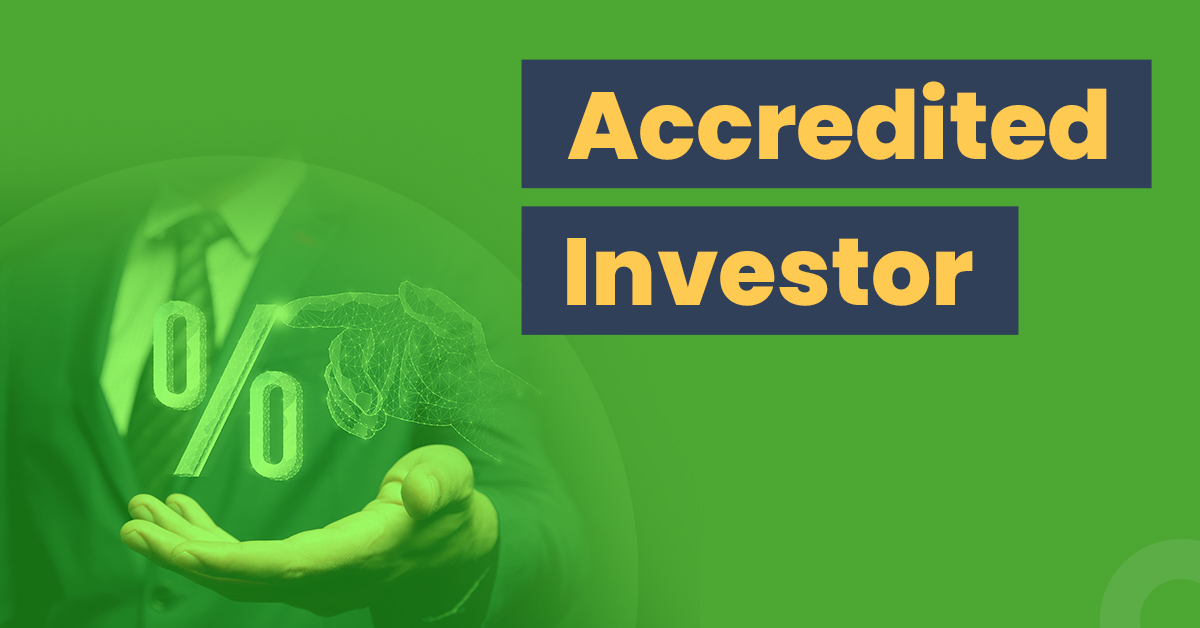Accredited Investor: Meaning, Eligibility and Importance


Investors are one of the most valuable assets of the stock markets. In India, the Securities and Exchange Board of India (SEBI) is responsible for safeguarding investors’ interests and providing hassle-free experiences. Therefore, SEBI has subdivided investors into different categories in order to ensure smooth business functioning.
One such category of investor is the Accredited Investor. It is a new concept in India as the capital markets regulator introduced this category in 2021. The main objective behind creating this distinct class of investors is to open up new channels of funding.
In this article, we’ll take a deep dive into who are accredited investors and the purpose behind the formation of this investor class.
Who Are Accredited Investors?
An accredited investor can be an individual or an entity that can invest in marketable securities which are not registered with the financial or regulatory authorities. In other words, people who are eligible to put their money in assets that are not available to retail investors or the general public are known as accredited investors.
SEBI offers certain relaxations and flexibility to these investors on account of satisfying certain minimum conditions like asset size, trading experience, net worth, governance, etc.
Individuals, family trusts, Hindu Undivided Family (HUF), sole proprietors, trusts, partnership firms, and corporates can become accredited investors subject to fulfilment of certain guidelines. SEBI has allowed the subsidiaries of depositories and stock exchanges to grant accreditation certificates to such investors provided the respective subsidiaries meet the criteria as specified in the regulations.
Sophisticated investors, high-net-worth individuals(HNI’s & UHNI’s), banks, and mutual fund houses are some examples of accredited investors.
Working of Accredited Investors
A majority of securities that are available for trading and investments should be registered with SEBI. Retail investors can invest in securities listed or registered with SEBI. They invest a relatively small amount of money in these securities. On the other hand, accredited investors put in a large sum of money into a particular asset-class.
One is free to invest in securities not registered with the Securities and Exchange Board of India. As the amount of investment is huge, entities directly offer their securities for investment to accredited investors. It saves time and costs for companies, and this process is called private placement.
As available securities under private placement do not pass through appropriate regulations and guidelines of SEBI, they come with relatively higher risk. In this case, investors deal directly with corporations, and it is up to them to analyse and ascertain all the vulnerabilities and risks associated with non-registered securities.
In the process of private placement, the role of SEBI gets limited to checking the veracity of accredited investors. SEBI will monitor that only genuine investors who fulfil its criteria are participating in the process.
What Is the Eligibility Criteria to become an Accredited Investor?
Individuals, family trusts, HUF’s and sole properietirs can be recognised as an accredited investors if they satisfy the following criteria:
- Annual income should be equal to or more than ₹2 crore per annum.
- Net worth of the investor should be more than ₹7.5 crore; out of this, at least ₹3.75 crore must be in the form of financial assets.
- Net annual income can also be equal to or greater than ₹1 crore; simultaneously, the net worth should be equal to or more than ₹5 crore. Out of net worth, at least ₹ 2.5 crore must be in financial assets.
- A partnership firm incorporated under Indian Partnership Act 1955 can also get the tag of an accredited investor. Every partner of this firm must separately confirm to the eligibility rules.
- Trusts having a net worth of more than ₹50 crore are also eligible to get registered as accredited investors.
- Corporates with a net worth of more than or equal to ₹50 crore can become accredited investors.
What Is the Need for Accredited Investors?
Now, let’s look at the significance of accredited investors in greater detail:
- This new category of investors have greater bandwidth when it comes to tailoring their investments as per their risk appetite and vision.
- Accredited investors investing at least ₹ 10 crores in a PMS are eligible for certain relaxations in regulatory compliances with regard to investments in unlisted securities.
- Large investors who have the leverage and are financially stable do not require much assistance from regulators. SEBI can focus its major attention to securing the interest of small retail investors more effectively.
How to Become an Accredited Investor in India?
Here is the process of becoming an accredited Investor in India:
- Complete all formalities
Investors looking to receive the accredited investor tag must complete all the formalities like having a Demat or trading account, minimum balance, KYC requirements, etc., before applying for the status of an accredited investor.
- Application
After opening the above-mentioned accounts, the next step is to apply for accredited investor status with stock exchanges or respective depositories. In India, there are three agencies, namely BASL, CVL and NDML, which have the authority to approve such applications.
Investors can visit their respective websites and apply for accredited investor tag. After going through the application process, these institutions will approve or reject the status. If they accept the application, the investor will receive approval as a licensed accredited investor for 3 years.
- Adhere to terms and conditions from time to time
It is important for accredited investors to periodically review the rules and regulations laid out by SEBI. In case there are any changes, they should immediately adhere to the same. If depositories or stock exchanges find that an investor is not following guidelines properly, they can also revoke the approval.
- Risk consideration
Investing in unregistered securities can be a risky affair due to the minimal supervision of regulators. Therefore, accredited investors are expected to maintain sufficient cash flows and assets to meet any financial emergency.
Final Word
An accredited investor is eligible for investing in assets that are not supervised by the authorities. Therefore, it becomes a risky venture, and this is why SEBI has imposed stringent conditions on individuals wanting to become accredited investors.
Frequently Asked Questions
What are the requirements for HUFs and family trusts to become accredited investors?
As per SEBI guidelines, entities falling in these categories should have an annual income of more than ₹2 crore, and their net worth should be at least ₹7.5 crore, with half of these in financial assets.
Who are retail investors?
They are small individual investors who can buy or sell only registered securities. They can invest money in stocks, commodities and exchange-traded funds.
Do accredited investors receive better returns?
Companies offer accredited investors their securities at a lower price to cover up the risk associated with these. This lowers the cost of procurement and may lead to high return potential.
Can accredited investors put their money in start-ups?
Start-ups organise various funding rounds as per their needs and requirements. A new and unregistered start-up offers unlisted securities to prospective investors. Accredited investors can easily invest their money in these startups.




